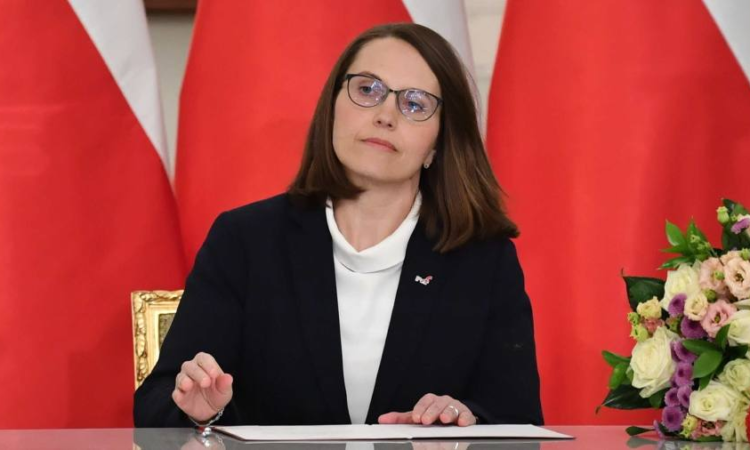
Poland is on track to unblock billions of euros of EU recovery funds before the end of the year, its finance minister has said, insisting that negotiators had made significant progress in talks with Brussels in the past month.
The EU has yet to advance the first tranche of cash under Poland’s Covid-19 recovery plan, which totals €36bn in grants and loans, after approving the overall programme in June. Poland is seeking to convince Brussels that it has instituted reforms that are sufficient to guarantee the independence of judges, a key demand from the European Commission.
Magdalena Rzeczkowska said Warsaw was “on the way to get this money” and that her government could lodge a first payment request — for €2.85bn in grants and €1.37bn in loans — before December.
“What is in the newspapers is one thing,” she said in an interview with the Financial Times, adding that while some members of the European Commission had pushed for Poland to do more to strengthen the rule of law, “as far as I know . . . there is not any official document which states that we didn’t do the reform properly”.
Brussels insists that to get its cash, Warsaw must demonstrate it has instituted a series of reforms to its system for disciplining judges. The conditions include a requirement that cases against judges are adjudicated by an impartial court, and that judges affected by past disciplinary chamber rulings have the right to a review of those decisions.
The commission declined to comment on the funding negotiations with Poland but said that without the fulfilment of rule-of-law milestones related to judicial independence, “no payment is possible”.
Opposition groups ahead of elections next autumn have accused the rightwing government of prime minister Mateusz Morawiecki of sacrificing EU money in order to keep control over Poland’s judiciary.
“Without fulfilling the obligations that Morawiecki himself imposed on his government, including the restoration of the rule of law, the government will not receive money,” said MEP Andrzej Halicki, who represents Poland’s opposition Civic Platform party and led a delegation from the European parliament that visited Warsaw last week.
Some EU officials question whether Poland has gone far enough with its reforms, but senior European policymakers are also eager to unlock the funding as the country has led the welcome of refugees after Russia’s invasion of Ukraine and the push for a tough response to Moscow.

The finance minister said Poland was on a different track than Hungary, which has not won EU backing for its recovery plan in part because of rule- of-law violations in the awarding of public contracts. “Poland is one of the best of the EU, so I don’t fear that something will be wrong with our transparency and anti-corruption procedures,” she said.
Separately, Rzeczkowska forecast that Poland would avoid a recession in 2022, despite a 2.3 per cent contraction in gross domestic product in the second quarter. The finance minister said production data and other indicators pointed to a return to growth in the third quarter.
However, she acknowledged that the economy could contract again in the final quarter if Europe suffers a winter energy crisis.
Polish banks are threatening to sue the government for its August decision to allow mortgage holders struggling with high energy bills to suspend payments for up to four months a year, at a time when Poland’s central bank has raised rates from near-zero last autumn to 6.75 per cent.
Warsaw has presented a 2023 budget that includes a record increase in military spending in the wake of Russia’s invasion of Ukraine. Rzeczkowska said a crackdown on tax evasion had raised revenues.
“We can afford such a big budget for this year and next year because we have managed to tighten the tax system to effectively combat tax fraud,” she said.
Rzeczkowska said Poland’s ability to borrow was still strong, reflecting a debt level of just 52 per cent of GDP that is well within the EU’s fiscal guidelines.
However, “it is more important to look at what is not budgeted rather than what is accounted for”, said Katarzyna Rzentarzewska, chief analyst at Vienna-based Erste Group Bank, pointing to recent emergency spending, including to help residents cope with soaring energy prices, as borrowing costs rise.
The finance minister insisted the energy crisis reinforced Poland’s belief in maintaining its own currency and monetary policy. “This is not exactly a good moment to enter the eurozone,” she said. “The eurozone has its own problems.”





